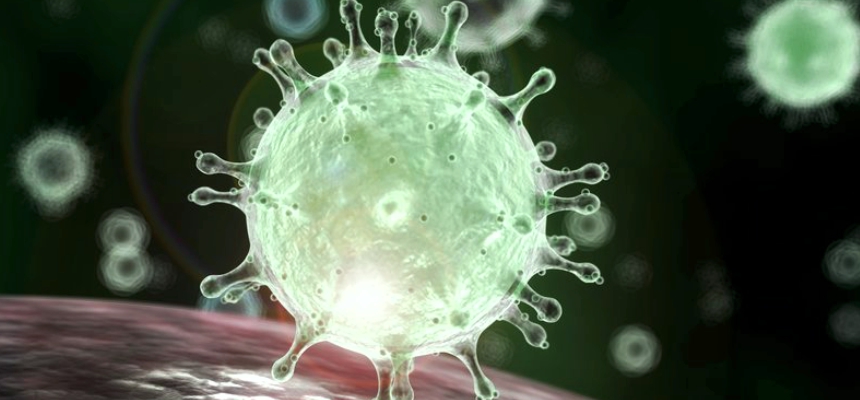Safety is a Priority for Corona virus

A novel Coronavirus (nCoV) is a new strain that has not been previously identified in humans. The Corona viruses usually cause illness ranging from the common cold to diseases such as Middle East Respiratory Syndrome (MERS-CoV) and Severe Acute Respiratory Syndrome (SARS-CoV). Globally around 25 countries are facing the wrath of this novel virus and several awareness drives are being carried out by different governments including GOI which has been taking preventive measures against the outbreak of the virus. More than 77,000 people have been infected in China, and the death toll there has passed 2,500.According to the recent report there are three confirmed cases in India that have been reported till date (4th Feb 2020).
.jpg) Dr. Saranya Narayan, Technical Director & Chief Microbiologist, Neuberg Diagnostics said, "If we see the data collated by the World Health Organization, as of 3rd Feb 2020, globally around 17391 people have been infected with 361 deaths reported till date. The current strain of the virus is fatal only for people who have an underlying chronic illness, asthmatic, or otherwise immuno-compromised for any reason. While we need to be careful, we can help ourselves by maintaining basic hygienic measures. There is no need for panic. Most people who have been infected with the new strain of the virus have also cleared the infection spontaneously.”
Dr. Saranya Narayan, Technical Director & Chief Microbiologist, Neuberg Diagnostics said, "If we see the data collated by the World Health Organization, as of 3rd Feb 2020, globally around 17391 people have been infected with 361 deaths reported till date. The current strain of the virus is fatal only for people who have an underlying chronic illness, asthmatic, or otherwise immuno-compromised for any reason. While we need to be careful, we can help ourselves by maintaining basic hygienic measures. There is no need for panic. Most people who have been infected with the new strain of the virus have also cleared the infection spontaneously.”
Meanwhile, the Indian Council of Medical research-NIV Pune has a Specimen Referral Form for 2019 Novel Corona Virus (2019-nCOV) that clearly outlines the steps that need to be followed in a suspected case.
Dr. Saranya, Technical Director & Chief Microbiologist, Neuberg Diagnostics said, “Most of the people who have been confirmed for the novel Corona virus infection have a history of having travelled from China in the previous 2 weeks, or have been in contact with someone who has symptoms, who has travelled to China in the recent past. It has also been found that there are people who have contracted Coronavirus but are asymptomatic but are capable of transmitting the infection. This is more worrisome.”
Preventions:
There is currently no vaccine to prevent coronavirus disease 2019 (COVID-19). The best way to prevent illness is to avoid being exposed to this virus. However, as a reminder, CDC always recommends everyday preventive actions to help prevent the spread of respiratory diseases, including:
- Avoid close contact with people who are sick.
- Avoid touching your eyes, nose, and mouth.
- Stay home when you are sick.
- Cover your cough or sneeze with a tissue, then throw the tissue in the trash.
- Clean and disinfect frequently touched objects and surfaces using a regular household cleaning spray or wipe.
- Follow CDC’s recommendations for using a facemask.
- CDC does not recommend that people who are well wear a facemask to protect themselves from respiratory diseases, including COVID-19.
- Facemasks should be used by people who show symptoms of COVID-19 to help prevent the spread of the disease to others. The use of facemasks is also crucial for health workers and people who are taking care of someone in close settings (at home or in a health care facility).
- Wash your hands often with soap and water for at least 20 seconds, especially after going to the bathroom; before eating; and after blowing your nose, coughing, or sneezing.
- If soap and water are not readily available, use an alcohol-based hand sanitizer with at least 60% alcohol. Always wash hands with soap and water if hands are visibly dirty.
Health experts believe that instead of panicking and wearing masks people should be more aware and maintain better hygienic practices in the form of preventive measures.
Book Appointment: Dr. Saranya Narayan, Technical Director & Chief Microbiologist, Neuberg Diagnostics

 Disclaimer: Welthi.com does not guarantee any specific results as a result of the procedures mentioned here, and the results may vary from person to person.
Disclaimer: Welthi.com does not guarantee any specific results as a result of the procedures mentioned here, and the results may vary from person to person.









